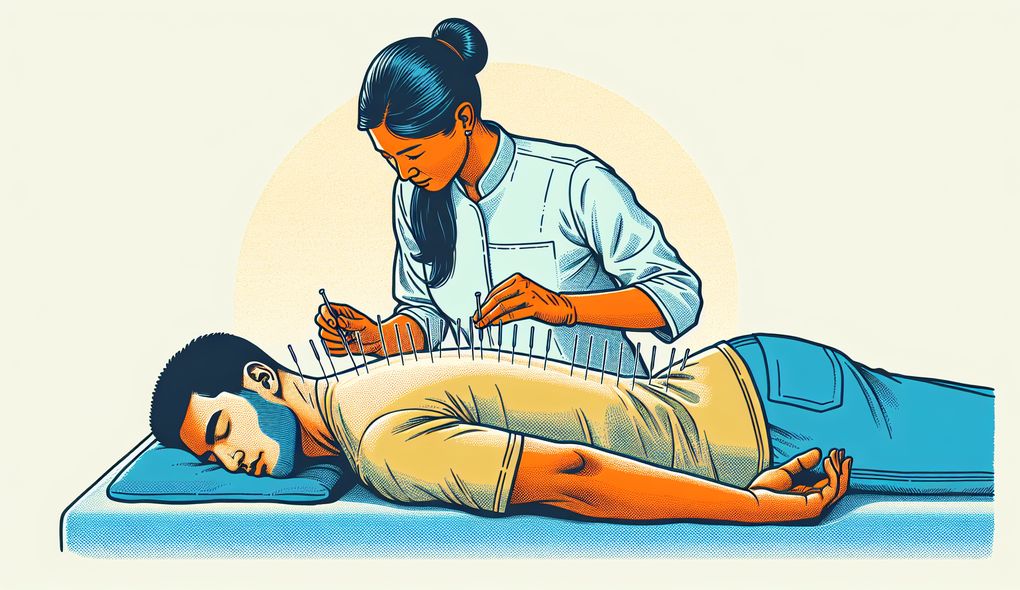What are the essential skills and qualifications required to be a Senior Acupuncturist?
SENIOR LEVEL

Sample answer to the question:
To be a Senior Acupuncturist, the essential skills and qualifications include in-depth knowledge of acupuncture points and meridians, strong analytical and diagnostic skills, excellent manual dexterity and precision, ability to design and implement effective treatment plans, strong ethical standards and professionalism, and commitment to ongoing professional development and education.
Here is a more solid answer:
As a Senior Acupuncturist, it is crucial to have a deep understanding of acupuncture points and meridians. This knowledge allows for accurate assessment and treatment of patients' conditions. Additionally, strong analytical and diagnostic skills are essential to identify the underlying causes of patients' health issues. Excellent manual dexterity and precision are necessary to perform acupuncture procedures with care and accuracy. Designing and implementing effective treatment plans require a comprehensive understanding of various techniques and modalities. Furthermore, a Senior Acupuncturist must uphold strong ethical standards and professionalism, ensuring patient confidentiality and respect. Lastly, a commitment to ongoing professional development and education allows for staying up-to-date with advancements in acupuncture and providing the best care possible.
Why is this a more solid answer?
The solid answer includes specific details and examples to support the essential skills and qualifications required for a Senior Acupuncturist. It goes beyond simply listing the skills and qualifications by explaining the importance of each skill and how it contributes to the role. The answer could be improved by providing more specific examples or experiences related to each skill or qualification.
An example of a exceptional answer:
To excel as a Senior Acupuncturist, extensive knowledge of acupuncture points and meridians is crucial. This expertise enables precise needle placement and customized treatment plans for each patient. Strong analytical and diagnostic skills enable the identification of underlying health issues and the development of targeted treatment strategies. Excellent manual dexterity and precision allow for the application of various techniques, such as scalp acupuncture or cupping therapy, with accuracy and effectiveness. In addition to technical skills, ethical standards and professionalism are paramount in building trust and providing compassionate care. Senior Acupuncturists demonstrate commitment to ongoing professional development by attending conferences, pursuing advanced certifications, and staying informed about the latest research in acupuncture and traditional Chinese medicine. They actively mentor and guide other acupuncturists to foster a collaborative and supportive clinical environment.
Why is this an exceptional answer?
The exceptional answer provides a comprehensive explanation of each essential skill and qualification required for a Senior Acupuncturist. It includes specific details, examples, and demonstrates a deep understanding of the role and its responsibilities. The answer could be further enhanced by incorporating personal experiences or achievements related to each skill or qualification.
How to prepare for this question:
- Review and study acupuncture points, meridians, and traditional Chinese medicine principles to ensure a strong foundation of knowledge.
- Practice analytical and diagnostic skills by analyzing case studies and developing treatment plans tailored to specific conditions.
- Enhance manual dexterity and precision through regular practice and exercises, such as needle placement drills.
- Stay updated with the latest advancements in acupuncture techniques and treatment modalities by attending seminars, workshops, and conferences.
- Develop strong ethical standards and professionalism by prioritizing patient care, maintaining confidentiality, and adhering to professional codes of conduct.
- Invest in ongoing professional development and education by pursuing advanced certifications and participating in continuing education courses.
- Seek opportunities to mentor and guide junior acupuncturists to strengthen leadership and communication skills.
- Maintain a well-rounded approach to patient care by expanding knowledge in complementary practices like herbal medicine, nutrition, and lifestyle modifications.
What are interviewers evaluating with this question?
- Acupuncture knowledge
- Analytical and diagnostic skills
- Manual dexterity and precision
- Treatment plan design and implementation
- Ethical standards and professionalism
- Professional development and education

